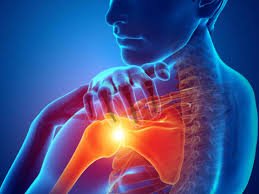
Dr. Sanjay Barik
Knee & Shoulder Surgeon
Meet Our Doctor

Dr. Sanjay Barik
Orthopedic and Joint Replacement Surgeon
Dr. Barik's Orthocare Clinic
- MBBS
- MS - Orthopaedics
Shoulder Arthroscopy In Burhanpur
- Home
- Quick Links
- Shoulder Arthroscopy In Burhanpur
Arthroscopy is a procedure that surgeons use to the inspect, diagnose, and treat problems inside a joint. The word arthroscopy comes from two Greek words. The term literally means “to look within the joint.” During shoulder arthroscopy, your surgeon inserts a small camera, called an arthroscope, into your shoulder joint.
The camera pictures on a video monitor, and your surgeon uses to these images to guide miniature surgical instruments. Because the arthroscope and surgical instruments are thin, your surgeon can use a very small incisions rather than the larger incisions needed for standard, open surgery. This results in less pain for patients and shortens the time it takes to recover and return to the favorite activities.

When Shoulder Arthroscopy Is Recommended
A number of factors can increase your risk of having knee problems, including: Excess weight. Being overweight or obese increases stress on your knee joints, even during ordinary activities such as walking or going up and down stairs. It also puts you at increased risk of by accelerating the breakdown of joint cartilage. Lack of muscle flexibility or strength. A lack of strength and flexibility can increase the risk of knee injuries. Strong muscles help to stabilize and protect your joints, and muscle flexibility can help you achieve full range of motion. Certain sports or occupations. Some sports put greater stress on your knees than do others. Alpine skiing with its rigid boots and potential for falls, basketball’s jumps and pivots, and the repeated pounding your knees take when you run or jog all increase your risk of knee injury. Jobs that require to the repetitive stress on the knees such as construction of the farming also can increase your risk. Having a previous knee injury makes it more likely that you’ll injure your knee again.
Planning for Surgery
Your surgeon may ask you to see your primary doctor to make sure that you do not have any medical problems that need to be addressed before your surgery. Blood tests, an electrocardiogram, or a chest X-ray may be needed to safely perform your surgery. If you have certain health risks, a more extensive evaluation may be necessary before your surgery.
If you are generally healthy, your arthroscopy will most likely be performed as an outpatient procedure. This means you will not need to stay overnight at the hospital. Be sure to inform your surgeon of any medications or supplements that you take. You may need to stop taking some of these prior to surgery. The hospital or surgery center will contact you ahead of time to provide specific details about your procedure. Make sure to follow the instructions on when to arrive and especially on when to stop eating or drinking prior to your surgery.
Anesthesia
Shoulder Arthroscopy Before the operation anesthesia staff will talk with you about anesthesia.
Shoulder arthroscopy may be performed to using a regional nerve block, which numbers of your shoulder and arm. nerve blocks with a light general anesthetic because patients can become uncomfortable staying in one position for the length of time needed to the complete the surgery. However, the your surgery will depend on surgery.
Long-Term Outcomes
Because patients have varied health conditions, complete recovery time is different for everyone.
- If you have had a minor repair:
- You may not need a sling
- Your strength may be return after a short period of rehabilitation.
- You may be able to the return to work or school within a few days of your procedure.
It takes longer to recover from more complicated procedures. Although the incisions are small in arthroscopy, the procedure can be used to repair extensive damage within the joint. If there is a lot of damage and a lot of repair is needed, full recovery may take several months. Although it can be a slow process, following your surgeon’s guidelines and rehabilitation plan is vital to a successful outcome.
Complications
Most of the patients do not experience complications from the shoulder arthroscopy. These are usually minor and treatable. Potential problems with arthroscopy include:
- Infection
- Excessive bleeding
- Blood clots
- Damage to blood vessels or nerves


